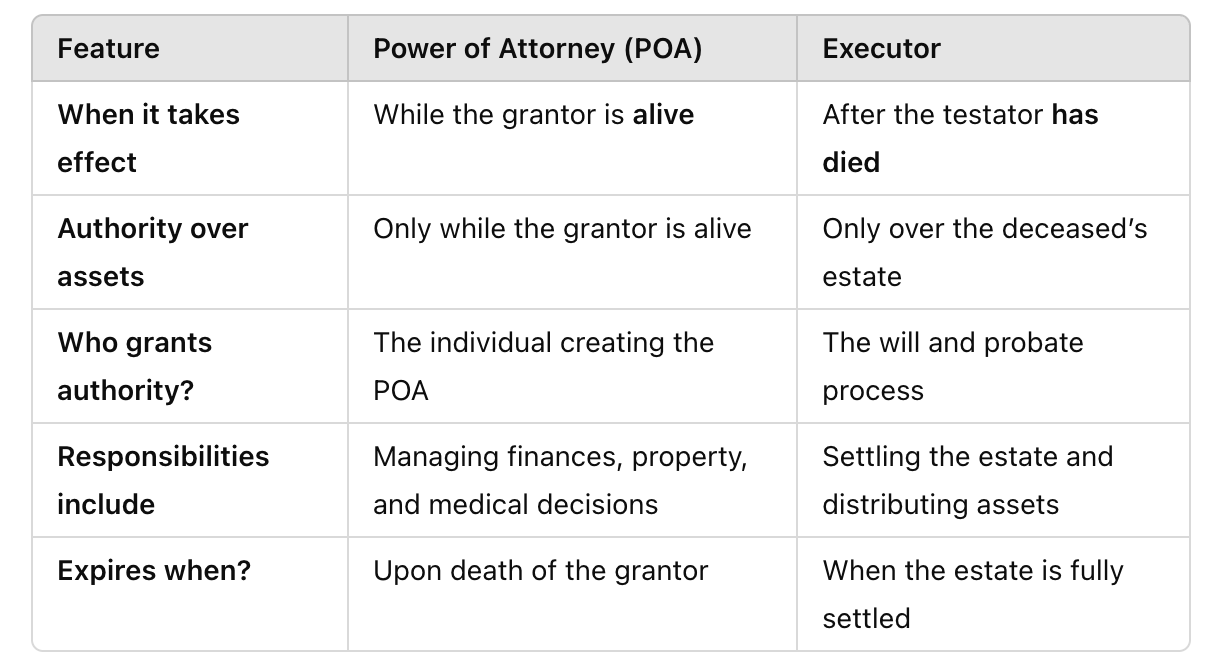There are a few key differences between these legal roles, with the most significant being that Power of Attorney (POA) is granted and carried out while someone is still alive, whereas an executor’s duties begin after a person has passed away. Both roles involve managing financial or personal affairs, but they serve different purposes and have different legal authorities.
What is a Power of Attorney?
A Power of Attorney (POA) is a legal document that grants one person (the “attorney”) the authority to act on behalf of another (the “grantor”) in financial or personal matters. This authority is effective only while the grantor is alive and becomes void upon their death.
Types of Power of Attorney
- General Power of Attorney – Grants broad authority over financial and legal matters but ceases if the grantor becomes mentally incapacitated.
- Enduring (or Continuing) Power of Attorney – Remains in effect if the grantor loses mental capacity, allowing the attorney to continue managing affairs.
- Limited (or Specific) Power of Attorney – Grants authority over specific tasks, such as selling property, for a defined period.
- Medical Power of Attorney (Health Care Directive) – Allows someone to make medical decisions on behalf of the grantor if they are unable to do so.
Legal Recognition of Power of Attorney in Canada
Each province has its own laws governing POAs. For details, visit:
- Ontario – Substitute Decisions Act
- British Columbia – Power of Attorney Act
- Alberta – Powers of Attorney Act
What is an Executor?
An executor is the person named in a will to manage and settle an estate after the testator (the person who made the will) has passed away. Unlike a POA, an executor’s authority begins only after death and involves:
- Collecting and securing assets.
- Paying off outstanding debts and taxes.
- Distributing assets according to the will.
For more details on executor responsibilities, visit the Government of Canada’s estate administration guide.
Key Differences Between an Executor and Power of Attorney

Choosing the Right Person for Each Role
Because both an executor and POA holder manage critical financial and legal responsibilities, choosing the right person is essential. Consider the following:
- Financial and Legal Knowledge – Both roles require someone comfortable handling paperwork, legal matters, and financial decisions.
- Trustworthiness – The person chosen should act in the best interest of the grantor (POA) or beneficiaries (executor).
- Availability – Managing an estate or financial affairs takes time and effort.
- Willingness to Serve – Always discuss these roles with the individual before appointing them.
For further legal advice, consult the Canadian Bar Association’s guide on estate planning.
Disclaimer: This article is for informational purposes only and does not constitute legal advice. Please consult a qualified professional for guidance specific to your situation.




